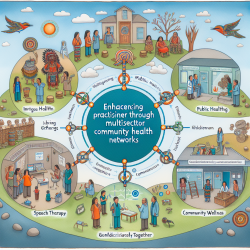Introduction
Artificial Intelligence (AI) is transforming disaster risk management (DRM) by enhancing predictive models, planning mitigation strategies, and optimizing aid distribution. However, the ethical implications of AI in DRM, such as fairness, accountability, and transparency, are often overlooked. This blog explores these ethical considerations and offers practical steps for practitioners to improve their skills by integrating AI responsibly.
Understanding Fairness, Accountability, and Transparency (FAccT)
FAccT research focuses on ensuring AI systems are fair, accountable, and transparent. Fairness refers to the absence of bias in AI algorithms, accountability involves holding developers and users responsible for AI outcomes, and transparency ensures AI processes are understandable. These principles are crucial for DRM, where AI models must be unbiased and accountable to the communities they serve.
Addressing Bias in AI Models
Bias in AI models can lead to unfair treatment of vulnerable populations. Practitioners can mitigate bias by:
- Auditing AI models for potential biases, especially in geospatial data.
- Involving local experts to identify sensitive groups and prioritize values.
- Ensuring diverse representation in training datasets.
By addressing bias, practitioners can enhance the accuracy and fairness of AI models in DRM.
Enhancing Accountability and Transparency
Accountability and transparency are vital for building trust in AI systems. Practitioners can improve these aspects by:
- Implementing explainable AI techniques to clarify AI decision-making processes.
- Engaging with local communities to understand their needs and values.
- Establishing clear accountability frameworks for AI deployment in DRM.
These steps ensure AI systems are transparent and accountable, fostering trust and collaboration with local communities.
Promoting Inclusivity in AI Research
Inclusivity is essential for ethical AI development. Practitioners can promote inclusivity by:
- Incorporating diverse cultural values and perspectives in AI design.
- Collaborating with local experts and communities to define ethical frameworks.
- Ensuring representation from low- to middle-income countries in AI research.
By prioritizing inclusivity, practitioners can develop AI systems that respect and reflect the values of diverse communities.
Conclusion
AI has the potential to revolutionize DRM, but ethical considerations must guide its implementation. By addressing bias, enhancing accountability and transparency, and promoting inclusivity, practitioners can harness AI's benefits while minimizing risks. For further insights, practitioners are encouraged to explore the original research paper, Fairness and accountability of AI in disaster risk management: Opportunities and challenges.










